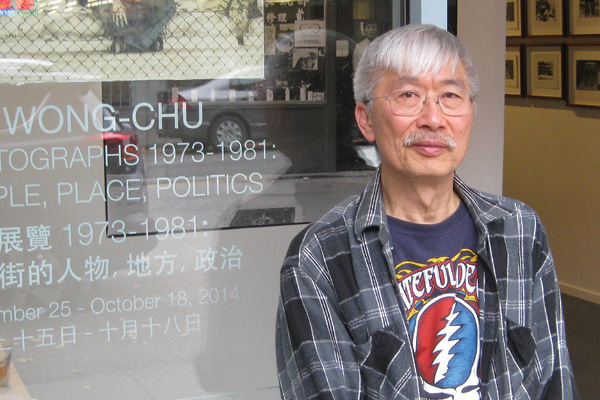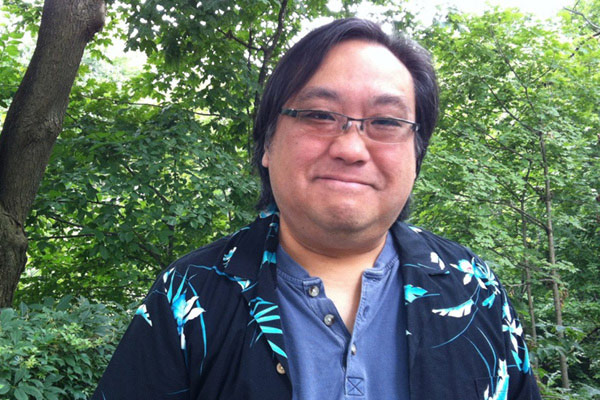By Terry Watada
“I’m here at the Academy Awards,
otherwise known as the White People’s Choice Awards!”
Chris Rock, February 2016
Chris Rock’s witty and quotable monologue at the top of the Oscars drew what I perceived to be a smug response from the audience. It was as if celebrities like Leonardo di Caprio, Johnny Depp or Olivia Wilde were saying, “Oh, look at us, we’re so cool we can laugh at ourselves while getting slammed.” Never mind that they are part of the problem. But I digress.
As I mentioned in a previous column, the Oscar controversy became a black-white issue even though so many other people of colour were snubbed by the annual ego-fest. The insensitivity to groups like Asians and Asian Americans exploded on stage when Rock himself staged a skit in which he introduced three Asian children as Academy accountants. Talk about the pot calling the kettle black (forgive the pun). To top it off, sophomoric and perpetually crass comedian Sacha Baron Cohen leveled remarks at Asians that were akin to genital slander.
A letter of protest was sent to the Academy board of directors by several Asian American members. In part the letter said, “We are writing as Academy members of Asian descent to express our complete surprise and disappointment with the targeting of Asians at the 88th Oscars telecast and its perpetuation of racist stereotypes. In light of criticism over #OscarsSoWhite, we were hopeful that the telecast would provide the Academy a way forward and the chance to present a spectacular example of inclusion and diversity. Instead, the Oscars show was marred by a tone-deaf approach to its portrayal of Asians.” It was signed by such notable personalities as Ang Lee, George Takei, Nancy Kwan and Sandra Oh.
As far as I know, the Academy has only responded with “The Academy appreciates the concerns stated, and regrets that any aspect of the Oscar telecast was offensive. We are committed to doing our best to ensure that material in future shows be more culturally sensitive.”
A rather tepid apology.
Have the Oscars ignored Asians for its awards of dubious achievement? Throughout the “history” of the Academy, awards for Asians in the major categories are few and far between: Yul Brynner (of Russian and Mongol background) won in the best actor category for The King and I (1956), followed by Ben Kingsley (father was South Asian) in 1982 for Ghandi; Merle Oberon (Hindu background) was nominated for best actress in The Dark Angel in 1935. No other actress has come even close. Given the times, I suppose these notables were not visibly Asian and therefore acceptable, possibly exotic but acceptable nonetheless. In the best supporting actor category, Asians fared much better: Mako and Pat Morita were nominated (respectively for The Sand Pebbles, 1966, and The Karate Kid, 1984). Haing S. Ngor won for his role in The Killing Fields, also in 1984. Miyoshi Umeki was nominated for Best Supporting Actress (Sayonara, 1957) as were Meg and Jennifer Tilly (Agnes of God, 1985, and Bullets Over Broadway, 1994, respectively); they were of Chinese Canadian background. There were other Asian actresses nominated but none won. Best director went to Ang Lee twice for Brokeback Mountain (2005) and Life of Pi (2012). Asian producers have been nominated several times for best picture but have never won. South Asian Ismail Merchant’s films have been nominated three times over the years.
Asian Americans excel in documentary film. Steven Okazaki, a San Francisco sansei, was nominated twice, first for Unfinished Business and second for Days of Waiting. He won for the latter, a remarkable film about Estelle Ishigo, a hakujin internee in America. Several titles by other directors in fact have been nominated and a few have won.
Perhaps the most honoured Asian American was James Wong Howe. From 1938 to 1975, he was nominated for best cinematography ten times, winning twice. His artistry can be seen in such films as The Old Man and the Sea and Hud. The cinematography was sublime.
So what can be concluded by this survey? Asians are recognized and showered with the dubious accolade for their work behind the camera more than in front. In the past, they had to be able to pass for Caucasian to win as leading actors in Hollywood. Asians were never the leads of movies, only supporting actors. Today, it seems out of sight, out of mind since few are given the opportunities to star in feature films.
Watching the Oscars is boring, with only the opening monologue exhibiting a bit of entertainment, but with this year’s controversy about the lack of diversity (i.e. the lack of nominated Black actors), there was some potential for sparks. Unfortunately, the Academy was just as myopic about other people of colour as it was about African Americans, and Chris Rock was not as enlightened as he appeared to be.


